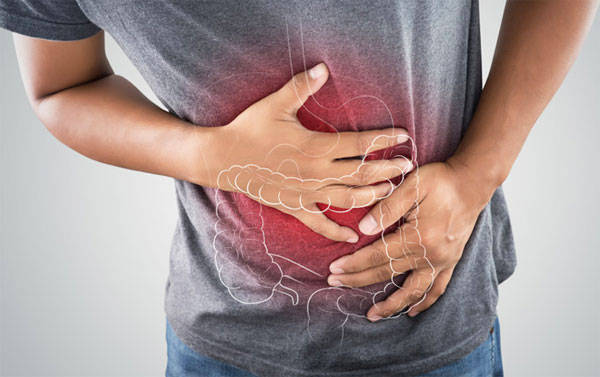What You Should Know About Dumping Syndrome

Dumping syndrome is a collection of side effects that can appear after surgery to remove all or a portion of the stomach, after bypassing your stomach to aid in weight loss, or after esophageal surgery. In this syndrome, our esophagus or stomach begins to move the food we eat too quickly into the bowel.
Types of dumping syndrome
It is of two different types based on the timing of your symptoms, including:
- Early dumping syndrome: This occurs 10 to 30 minutes after eating.
- Late dumping syndrome: This occurs 1 to 3 hours after eating.
Symptoms of dumping syndrome
The symptoms of dumping syndrome vary depending on the type, and sometimes some individuals have both early and late dumping syndrome.
During early dumping syndrome, you may experience:
- Distended abdomen
- Nausea and vomiting
- Abdominal cramping and pain
- Diarrhea
- Dizzy spells
- Increased heart rate
- Feeling bloated
During late dumping syndrome, you may experience:
- Shakiness or jitters
- Weakness and fatigue
- Cold sweats
- Face flushing
- Brain fog
- Hunger
- Rapid or irregular heartbeat
Causes of dumping syndrome
Surgery-related causes comprise:
- Vagotomy
- Esophagectomy
- Gastrectomy
- Pyloroplasty
- Bariatric surgery
- Nissen fundoplication
Disease-related causes comprise:
- Duodenal ulcers
- Functional dyspepsia
- Diabetes mellitus
- Cyclic vomiting syndrome
- Autonomic dysfunction
- Zollinger-Ellison syndrome
- Cannabis hyperemesis syndrome
- Exocrine pancreatic insufficiency
Diagnosis of dumping syndrome
The following techniques may be used by your doctor to determine whether you have dumping syndrome:
- Medical history and evaluation
- Upper endoscopy
- Upper GI series
- Hydrogen breath test
- Blood sugar test
- Oral glucose tolerance test
- Gastric emptying test
Treatment of Dumping Syndrome
Within three months, early dumping syndrome is likely to go away on its own. There's a good chance that making dietary changes will help you feel better in the meantime. If not, your doctor might advise either surgery or medication.
- Medications: If dietary modifications don't help your symptoms, your doctor might recommend an anti-diarrheal medication that is injected under your skin to slow the passage of food into the intestines.
- Surgery: Depending on your circumstances, surgery may be advised if conservative measures fail to help.
- Lifestyle changes: You are advised to eat smaller meals and lie down for 30 minutes after each meal. And you should drink 1.4 to 1.9 liters of fluid a day, and that too between meals. Eat more protein, fiber, and complex carbohydrates and limit high-sugar food intake.
- Alternative medicine: Ask your doctor about using a few substances to thicken the digestive contents and slow the passage of food through the intestines.
When to get checked out for dumping syndrome
If you experience any of the above-mentioned signs or symptoms for an extended period of time, regardless of whether you've had surgery or not, see your doctor. Additionally, if diet changes do not help with the symptoms or if you are losing a lot of weight, you should see a doctor immediately.
Summing it up with Dr. Neeraj Goel
There are no serious or potentially fatal complications associated with dumping syndrome, but it will definitely impact your daily life. Therefore, it is best to see a doctor and receive care as soon as possible. Treatment for complex conditions and complications like dumping syndrome is very well handled by Dr. Neeraj Goel, the best GI surgeon in Delhi, with his excellence and expertise. You can take advantage of his top-notch medical services by visiting him.

 info@gastrodelhi.com
info@gastrodelhi.com +91-9599294453
+91-9599294453